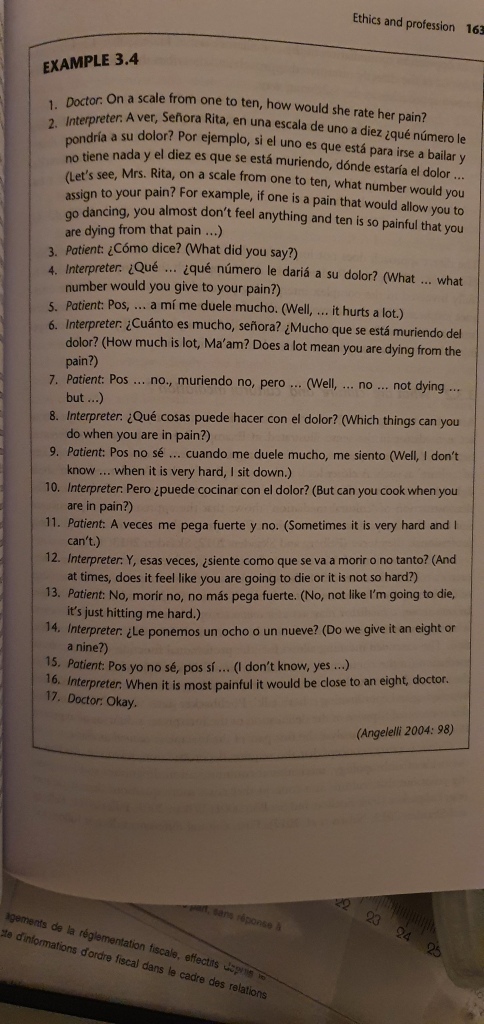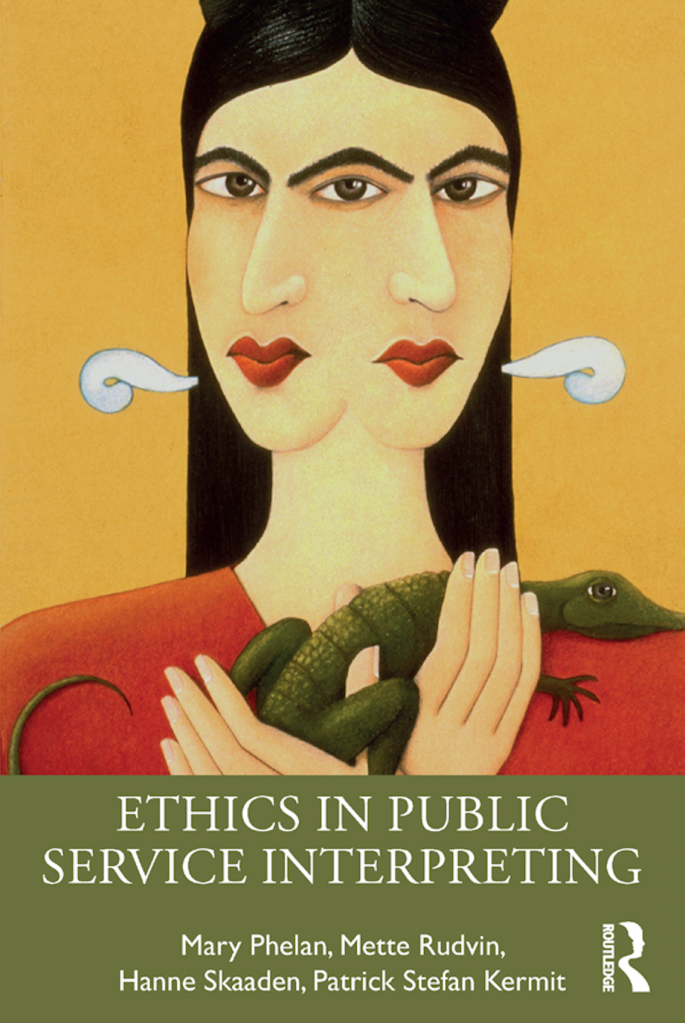These are a series of tweets on neutrality and impartiality of interpreters. Sparked by an episode of Troublesome Terps.
Latest @troubleterps episode was indeed troublesome. Fascinating, but I have to stand up for neutrality & impartiality. I often hear @Colombias’ views from students or colleagues. Yet, it’s a serious misunderstanding of professional ethics. Let me explain in this thread. #1nt
A popular stance is neutrality & impartiality in #1nt is passé since interpreters are human beings and thus cannot be neutral. Well, exactly because we are human beings, we need to keep neutrality and impartiality. How would we otherwise like our interpreters? Partial and biased?
Neutrality & impartiality are concepts of professional ethics. We need professional ethics as personal ethics may vary. Professional ethics are common agreements on how to behave in varied contexts, e.g. even a murder suspect caught red handed gets a defense lawyer. #1nt
Neutrality is your handling of the case. When interpreting, your professional evaluation of the situation must not be colored by personal convictions. One is allowed personal convictions, but not to express them or let them influence while interpreting. Down to word level. #1nt
If you know that your personal convictions overshadow your professional evaluation you have all rights NOT to take, or withdraw, from an assignment. You will not be paid of course, but no one will force you to interpret. I have turned assignments down for that reason. #1nt
In fact, if I, as dependent on an interpreter, was going to discuss an abortion with my gynecologist, I think I would prefer having an interpreter showing no strong convictions to either side. It’s difficult enough. #1nt
Neutrality does not mean void of empathy. Empathy is a good personal trait of an interpreter, a socio- or psychopath interpreter personality sounds like a really bad idea. #1nt
Being empathic does not mean advocating. @NaomiSheneman’s tale of four interpreters is a wonderful description about how an interpreter can make a user feel (I note that #1 does not advocate, but show empathy and attentiveness) <blockquote class=”twitter-tweet”><p lang=”en” dir=”ltr”>I was in the ER from 3 pm til 145 am. I had four different interpreters. Interesting to see how they were all different bringing up thoughts of characteristics of an ideal healthcare interpreter. Bedside manners and clear masks are a must. See my comments for a profile of each /1</p>— Naomi Sheneman (@NaomiSheneman) <a href=”https://twitter.com/NaomiSheneman/status/1313469819820404737?ref_src=twsrc%5Etfw”>October 6, 2020</a></blockquote> https://platform.twitter.com/widgets.js
You can hand your client a handkerchief and still be neutral. You can show with your voice that there is sadness or anger in the account you’re interpreting. It does not serve your client well if you are overcome by the situation and cry or hit a desk in anger while #1nt.
What if you witness misconduct by a civil servant, or overhear that the person you are interpreting is planning a crime? In the countries where I interpret, there are legislation about this, and boards where you can report authorities’ abuse. #1nt
Neutrality does not mean you are a machine only that you are dealing with matters at hand in a non-biased way. Every situation is individual, yet there is a predetermined format that you adapt to, just like any civil servant. #1nt
Sometimes, deciding whether someone is or can be neutral is hard (just look at the discussions about the nominations to the US supreme court). Imagine a political activist in a local community for a political party with very immigrant restrictive policies. #1nt
The name and face are all over town because there is an election for an office in that community. Can that person work as a neutral interpreter in an immigration hearing? #1nt
Well presumably they can, as we have concluded that one is are to believe whatever one likes as long as you can be neutral to the case at hand. The question is perhaps whether the individual in the immigrant hearing will trust you, and trust is another crux of the matter. #1nt
So visibility may be an issue, but who on earth came up with the idea that neutral and invisible were linked together? Take the example of a judge: I would expect a judge in a court case to be neutral, but absolutely not invisible. #1nt
Users of interpreting can say, “that interpreter was so good, as if they were not there”. That’s not invisibility, that’s an #1nt who neither renounced the task nor took over the event event. Interpreters cannot be invisible, although though sometimes not seen. #1nt
I certainly want my kids’ football referee to be neutral, but an invisible referee would be completely useless. I don’t expect the football referee not to have opinions on football, but I would be very upset if it looked like he was partial towards one of the teams. #1nt
So, what about impartiality? Can an #1nt really be impartial? As individuals we belong to different groups, different nationalities, different organisations. We have different ethical backgrounds, different faith and different convictions. Isn’t impartiality only an illusion?
Well, the demand and the challenge here are to not take sides in the case at hand. And, to be aware of your own ideas and convictions so as not let them influence you. You are loyal to both sides (be bi-partial), (unless you’re a military interpreter, I’ll come to that). #1nt
If you very strongly believe that a person is guilty and decide to “help” the court by twisting the defendants statement a little, well then you are not the right person for the job. When taking sides one advocates and that is another profession. #1nt
Remember you only see the side of the story presented in that meeting, you have no idea of the mechanisms behind, are you sure that your understanding of the situation is the best one for all parties. See illustration from Skaaden 2019. #1nt

On advocacy: if I wore a hijab, I would prefer an interpreter who let me explain when I’m comfortable taking off my hijab rather than having an interpreter “helping me” by telling the other people in my meeting when I can take it off or not. #1nt
About hijab btw. Can you wear it and be neutral? In France (so I’m told), it would be absolutely impossible for an interpreter to wear a hijab (or a cross for that matter). In Sweden, I have many #1nt colleagues wearing a hijab, nobody bats a lash.
More on advocacy: When I lecture for MDs and show them this photo (Skaaden 2019), they say this interpreter did not do a good job “helping to get an answer”. Their reactions are: I wouldn’t know a thing about that lady’s pain! #1nt

There are #1nt we expect to be partial. A military interpreter would not be trusted, it they do not belong to our side. This is often a big issue in military interpreting and also put interpreters at high risk.
A president often brings their personal interpreter to different meetings, I assume it has to do with trust and expecting the interpreter to be loyal to one side. This also often goes for business #1nt
Impartiality, pay and trust is a final issue. A court interpreter is paid by the court, so is that person impartial? I’d argue that this is exactly where the professional ethics and regulations comes into play. #1nt
For more on neutrality, impartiality, bi-partiality, professional ethics and the interpreters’ discretionary power read this book. Valid for all types of #1nt despite the title.







